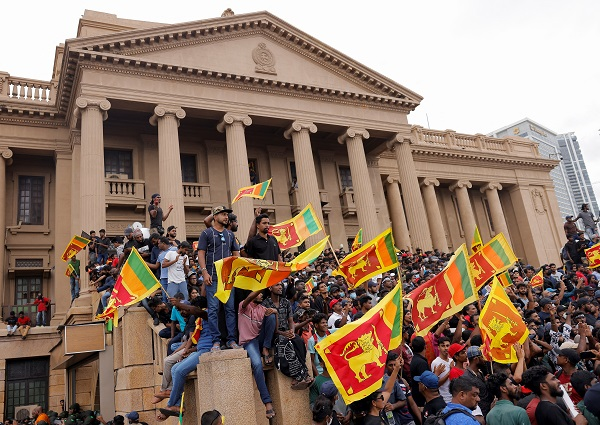
World Bank approves $700 million assitance for crisis-hit Sri Lanka

The World Bank has granted approval for $700 million in financing to assist Sri Lanka in recovering from its current economic crisis and providing relief to the impoverished and vulnerable population. This funding tranche is the largest since the International Monetary Fund (IMF) agreement in March. Sri Lanka is currently grappling with its worst economic downturn in history, with a contraction of over seven percent in 2022 and widespread protests that resulted in the removal of the influential Rajapaksa family from politics.
In a press release, the Washington-based World Bank stated that the Board of Directors had sanctioned $500 million for budgetary support and $200 million for social security. This significant financial assistance is intended to support foundational reforms in Sri Lanka, restore macroeconomic stability, mitigate the impact of current and future shocks on vulnerable communities, and promote an inclusive recovery led by the private sector.
Exclusive: On British soil, Annamalai berates India’s pre-2014 Sri Lanka policy
The financing consists of two operations. The Sri Lanka Resilience, Stability and Economic Turnaround (RESET) Development Policy Operation will provide $500 million to facilitate reforms that enhance economic governance, competitiveness, and growth while safeguarding the welfare of the poor and vulnerable. The funds will be disbursed in two equal tranches, subject to agreed-upon prerequisites.
The World Bank also discussed the new Country Partnership Framework (CPF) for Sri Lanka, which aims to restore economic and financial sector stability and establish a foundation for a sustainable, resilient, and inclusive recovery. The CPF acknowledges the severity of the ongoing economic crisis and the need for profound reforms to stabilize the economy and protect vulnerable segments of society.
Devastating impact of crisis
The crisis has had a devastating impact on people’s lives and livelihoods, with the poverty rate estimated to have doubled from 13.1 to 25 per cent between 2021 and 2022, representing an addition of 2.5 million individuals. The World Bank anticipates a further 2.4 percentage point increase in poverty in 2023. Faris H. Hadad-Zervos, World Bank Country Director for Sri Lanka, emphasised that the extent of the crisis presents a unique opportunity for deep reforms to reshape the country’s economic trajectory towards green, resilient, and inclusive development.
Watch: Tamils battle minority status in eastern Sri Lanka
The CPF’s phased approach focuses on early economic stabilization, structural reforms, and safeguarding the welfare of the poor and vulnerable. The private sector’s active involvement is crucial in overcoming the economic crisis, as it provides employment and livelihood opportunities for affected individuals. Shalabh Tandon, Acting Regional Director for IFC South Asia, emphasized the urgent need for job creation and livelihood opportunities in Sri Lanka, considering the impact of the crisis on the population.
With agency inputs


